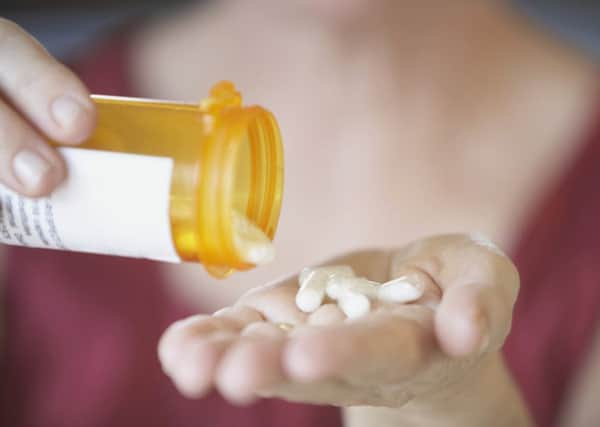Letters to GPs could cut antibiotic prescriptions


A new study has found that telling GPs when they give out too many antibiotics could cut the number of unnecessary prescriptions.
Sending GPs a letter about their habits cut antibiotic prescribing by an average of 3.3 per cent over six months, the study, which has been published in The Lancet medical journal and involved more than 1,500 GP practices in England, found.
Advertisement
Hide AdAdvertisement
Hide AdDuring a six-month period in winter 2014/15, letters were sent to practices across England who had antibiotic prescribing rates in the top 20 per cent for their area.
In one half of the trial, the letter, signed by Dame Sally, said “80 per cent of practices in their local area prescribe fewer antibiotics per head than yours” and gave simple tips on reducing prescribing.
The second half tested the effects of a poster and leaflet campaign in GP practices telling members of the public why antibiotics were not always necessary.
The results showed that GP letters were effective in cutting prescribing rates, while there was little effect from the poster campaign.
Advertisement
Hide AdAdvertisement
Hide AdDr Sanjay Wahie, local GP and medicines lead at NHS Wigan Borough Clinical Commissioning Group, said: “NHS Wigan Borough Clinical Commissioning Group (WBCCG) recognises that antibiotic resistance and complications of inappropriate antibiotic prescribing have been increasing locally and began to take action several years ago on this matter.
“Along with NHS partners and other stakeholders we developed an antibiotic prescribing formulary which has proved to be popular amongst local GPs and has led to reduced prescribing of antibiotics locally which has also reduced complications arising from their use. We would like to thank our primary care colleagues for their hard work in this area.
“Our GPs have also been involved in prescribing peer reviews for the last five years and antibiotic prescribing has been discussed specifically over the last three years at these sessions.
“No one wants the situation to develop where antibiotics are no longer effective and cannot be used to prevent or treat infections after routine surgical operations and cancer chemotherapy.
Advertisement
Hide AdAdvertisement
Hide Ad“Everyone can help avoid this happening by not demanding antibiotics from your GP – they don’t work on colds, flu and most
coughs.
“Alternatively, people can consider visiting their local pharmacy for advice on health matters which doesn’t need an appointment saves time and many are open at weekends and evenings.”
England’s chief medical officer Professor Dame Sally Davies, who was involved in the study, has described the issue of antibiotic resistance as a “ticking timebomb”.
Experts have warned that some infections will become untreatable in the future as bacteria become more and more resistant to antibiotics.
Advertisement
Hide AdAdvertisement
Hide AdThe trial was a collaboration between Dame Sally, Public Health England, the Department of Health, and the Behavioural Insights Team, which is independent of government but partly owned by the Cabinet Office.
Dame Sally said: “We know that drug-resistant infections are one of the biggest health threats we face.
“This innovative trial has shown effective and low-cost ways to reduce unnecessary prescribing of antibiotics, which is essential if we are to preserve these precious medicines and help to save modern medicine as we know it.”
Despite the push to cut antibiotic prescribing, there have been warnings that some patients are slipping through the net.
An NHS England report in January following the death of 12-month-old William Mead from sepsis said GPs were under “constant pressure” not to prescribe antibiotics, which could have saved his life.